Print Entire Issue

Presidents Message
Directly Speaking
Columns
Leadership Profile
Board of Pharmacy Update
Government Affairs Report
Educational Affairs
New Practitioners Network
ICHPeople
College Connection
Univerisity of Illinois at Chicago
Southern Illinois University Edwardsville
More
Upcoming Events
Officers and Board of Directors
Welcome New Members!
ICHP Pharmacy Action Fund (PAC) Contributors
 Presidents Message
Presidents Message
2017 Leadership Retreat: Elevate the Leader in You
by Travis Hunerdosse, PharmD, MBA President, ICHP
At the end of October, past presidents, current board members, and future leaders of ICHP gathered for the annual Leadership Retreat. The Leadership Retreat serves as an opportunity for attendees to learn new leadership skills, sharpen their tools, and actively participate in setting the direction for ICHP for the coming year. It is also a great venue to connect with old friends, meet new ones, and network with peers across Illinois. This is one of my favorite events and I was honored to be leading our discussion this year.
The theme for this year’s leadership retreat was Elevate the Leader in You! Elevate yourself, your team, and your profession. I chose Michael K. Simpson’s book entitled Unlocking Potential: 7 Coaching Skills That Will Transform Individuals, Teams, & Organizations because it provides tactics for us to use in coaching ourselves, teams, and our organization. This book provided the backbone for leadership development of the assembled group and guided our retreat discussions by weaving in the concepts to the topics that were covered. I am grateful for the opportunity to share some of the highlights of the book and the retreat.
In Unlocking Potential, the author highlights seven coaching skills that can help “big L” and “little l” leaders elevate individuals and teams into exceptional contributors to our profession. Having conversations with team members regarding the “big picture” and how their work makes a difference in patient care and our profession is important to advancing pharmacy practice. Being a coach is about having a positive impact on and individual’s mindset and behavior and helping that person see how they can contribute and make an impact. It is about gaining trust, tapping into their potential, getting commitment, and executing specific goals.
Coaching is important, so what are attributes of a great coach? Effective coaches actively listen and focus on potential within an individual; reflecting, facilitating, and amplifying. They create an environment where people feel safe to express themselves and feel understood. Effective coaches also challenge paradigms that are holding back individuals from achieving their true potential.
Unlocking Potential highlights seven coaching skills, including building trust, challenging paradigms, seeking strategic clarity, executing flawlessly, giving effective feedback, tapping into talent, and moving the middle. While I would like to provide an overview of all of these coaching elements, I have chosen to focus on three, starting with the importance of execution.
Execute Flawlessly
Execution of strategy is the biggest challenge of most organizations, yet it is of critical importance. What good is a well-planned strategy to an organization if it is not put into action? Individuals and teams can fail to meet their goals even when great strategies are put into place. It is extremely difficult not to get caught up in the demands of the day, such as e-mail, meetings, reports, or the crisis of the moment that distract from achieving strategic goals. In addition to the day-to-day swirl of competing priorities, there are four root causes for breakdowns with flawless execution. These include goal clarity, leveraged behaviors, compelling scoreboards, and weekly accountability. In summary, individuals and teams need to be able to state the goals, know what they need to contribute in order to meet those goals and the reasons why, communicate the metrics through a scoreboard and hold people accountable through routine conversations. In order to execute strategies, a coach must teach individuals the four principles of execution. Focus on “Wildly Important Goals” (WIGs), act on lead measures, keep a compelling scoreboard, and create a cadence of accountability.
Tap Into Talent
Many individuals underestimate their true potential. Effective coaches know how to help individuals tap into their talents and strengths. In addition, people want their talents to be leveraged and their skills to be put to work. Many employees feel that they are not being used to the best of their abilities. Leaders can evaluate by asking these powerful questions.
Team Coaching – Powerful Questions
- Where could your team add the greatest value within the organization?
- What unique capabilities does your team possess?
- Do you and your people feel valued, appreciated, and recognized for their contributions in their roles?
- How well do you effectively evaluate, develop, and promote the talent on your team?
- How well do you match team members’ jobs with the right skills, competencies and capabilities?
- Does your team have a clear vision, strategy, and goals to drive high performance?
Move the Middle
Leaders and managers often focus on elevating high performers. While top performers account for 20 % of the team; middle performers make up 70% and are often an overlooked talent pool. What many leaders fail to do is prepare a talent pipeline for moving mid-level workers into future key management and leadership roles. Leaders as coaches must clearly define how they can attract, retain and reward their employees.
- Attract – getting the right people on the team and establish the right culture.
- Position – identifying the skills required for a job specific role and getting individuals in the right role in order to thrive.
- Reward – recognizing and rewarding exceptional performance.
Linking the Coaching Principles to the ICHP Strategic Plan
The retreat focused on specific areas of the strategic plan, including membership engagement, fostering leadership, advocacy for the profession, and improving patient care.
Our Members and Partners
- Maintain a high level of member engagement and satisfaction
- Provide the toolkits and resources members need
- Connect with members in a variety of ways
- Promote research by our members and share lessons learned
Our People, Resources, and Profession
- Foster organizational leadership with volunteers and staff
- Provide basic leadership development opportunities for volunteers statewide
- Develop an environment that encourages succession planning within the volunteer leaders of ICHP
- Encourage opportunities and the freedom to learn and experiment
- Advocate for laws and regulations that improve care
- Achieve Provider Status in Illinois
- Provide input and guide the revision of the Pharmacy Practice Act
The 2017 ICHP Leadership Retreat was a very rewarding experience for me. As the president of our organization, I had the unique opportunity to lead the leadership and strategic discussions. I plan to use the coaching principles learned and the hearty discussions that was had throughout our meeting to move towards achieving increased member engagement, fostering organizational leadership, and advance advocacy efforts to improve the care of our patients across Illinois.
 Directly Speaking
Directly Speaking
PBMs: Are They the Enemy Within?
by Scott A. Meyers, Executive Vice President
When Pharmacy Benefit Management organizations (PBMs) first came about, they were all about saving employers money on pharmacy charges for their employees. It was a new idea but I believe it was not well thought out. Today, PBMs seem to be the enemy of pharmacy, the deceivers of those very employers they originally set out to help and the bane of many employees! I’m sure there are still pharmacists who work in managed care who are trying to help all of the above, but my faith in there being large numbers of them is horribly small! (And before I go any further, let me share that most health-system pharmacists don’t have to deal with PBMs and their contracts, restrictions and lack of transparency so this column is written more to inform than sympathize.)
Let me share a couple of examples I recently discovered. The first came to me from a cousin who recently retired from a Fortune 500 corporation as their Senior VP of HR. He told of a high ranking executive with the company who contacted my cousin, even though he had retired, after he had developed Non-Hodgkin Lymphoma and was treated at M.D. Anderson in Houston, a world-renown cancer treatment center. He was prescribed one medication but his PBM rejected it and, in place, used a second relatively new medication that the executive discovered cost 5-10 times that of the first. He and my cousin were both puzzled as to why the PBM, hired to help them save money, would allow a much more expensive drug compared to the one prescribed by the specialist at such a prestigious institution. Unfortunately, I explained that the rebate to the PBM was most likely higher for the second choice and that a question to the PBM would be appropriate. I haven’t heard back to see if the PBM responded.
The second story comes from one of my friends in the community pharmacy world. Very few health-system pharmacists I’ve spoken with are aware of DIR fees (Direct and Indirect Remuneration fees) or how something that was originally designed for fairness has gotten so corrupted, so here’s the scoop. Originally, DIR fees were a way for CMS and other payers to recoup rebates paid to PBMs by pharmaceutical manufacturers. Now many PBM contracts contain language regarding DIR fees that require pharmacies to charge the patient a full co-pay on all prescriptions even if the cash price is less! Then the PBM comes back to the pharmacy and claws back (community pharmacy’s term, I believe but it makes sense when you hear the whole story!) the difference between the co-pay and the cash price as one of their DIR fees! What is even more appalling in this case, is that the PBM contract prohibits the pharmacist from telling the patient that the cash price is less than the co-pay unless the patient or their agent actually asks! My question is, how much of these fees does the PBM share with the employer that hires them?
Finally, if you think about the current health insurance system in general, you can see a dichotomy that exists with the PBM controlling outcomes where failure, like re-hospitalization, costs them nothing while costing the health plan they are paired with everything. The incentive for successful medication therapy outcomes doesn’t appear to be much of a factor! Maybe I’m wrong on this issue, but nothing I’ve seen demonstrates the contrary.
In Illinois, PBMs are not regulated or monitored and barely even registered. This has to change. Illinois employers do not really know what they are or could be saving! Patients who are provided PBM coverage often don’t realize that they could have other choices. Pharmacies and pharmacists have their hands tied and are often forced to do extensive work on the PBM’s behalf and without proper reimbursement.
We need strong regulation of an industry that is now more focused on profits than on savings, on rebates rather than outcomes and on claw backs rather than caring. The worst part of this problem is that many pharmacists work at the center of PBMs and have done little to prevent it. Transparency is a good thing, especially in health care. After all, we are dealing with human life. As health care costs continue to rise, every chance for costs savings is important. And amassing large profits for PBMs at the expense of the employer and/or patient doesn’t seem to be fair, ethical or even legal.
The Illinois Pharmacists Association will be leading the effort this next year as they have in the past and ICHP will join them in their efforts. The Illinois Retails Merchants Association may be conflicted on this issue as one or more of their members own very sizable PBMs themselves while all of their pharmacy members have to deal with these unregulated entities. So it will be interesting to see how their participation will play out. Regardless, it is time for pharmacy to step up and demand transparency and fairness from all the players!
Columns
Leadership Profile
Meet Erika Hellenbart, PharmD, BCPS
Erika Hellenbart, PharmD, BCPS
Clinical Pharmacist, Ambulatory Pharmacy Services
Clinical Assistant Professor, Pharmacy Practice
University of Illinois at Chicago College of Pharmacy
What is your current leadership position in ICHP?
President of the Northern Illinois Council of Health-System Pharmacists (NISHP)
What benefits do you see in being active in a professional association such as ICHP?
Being active in professional associations like ICHP has allowed me to meet and pick the brains of people at other institutions that I would have otherwise never met. When I hear about all the great things colleagues are doing, it energizes me to do the same.
What initially motivated you to get involved in ICHP?
Many of my residency preceptors were very involved in ICHP and I could see how much they received from the experience. I initially got involved as a way to ensure I would stay in tune with an ever evolving profession. As I have gained more experience, I have enjoyed being able to add to the conversation.
Where did you go to pharmacy school?
Ohio State University College of Pharmacy (Go BUCKS!)
Where have you trained or worked?
I completed a PGY1 Pharmacy Residency at Midwestern University which focused in Ambulatory Care and Academia. Following residency, I started as a Clinical Assistant Professor/Pharmacist in the Antithrombosis Clinic at UIC. For the past few years I have split my time equally between the Heart Failure clinic and the Antithrombosis Clinic at UIC.
Describe your current area of practice and practice setting:
As a clinical pharmacist in the heart failure clinic, I work directly with our cardiologists to optimize patient medication regimens, including patient education, monitoring, and solving any access issues that arise. In the Antithrombosis Clinic, I manage anticoagulation regimens in our high-risk patient population. Similar to most faculty positions, I am involved in scholarly activities like writing and research in the area of anticoagulation and cardiology and I also teach pharmacy students, both didactically and clinically. More recently, as the class coordinator, I also assisted with re-developing our cardiology therapeutics class following curricular revisions.
Is there an individual you admire or look up to, or a mentor that has influenced your career?
Too many to list! My residency director, Jill Borchert, as well as my residency preceptors have been wonderful mentors as a resident and even today. They are the ones who motivated me to become involved in ICHP. Edith Nutescu and Nancy Shapiro for providing me with great career opportunities and Vicki Groo for being an amazing mentor as I have transitioned into our heart failure clinic. I admire her ability to maintain a healthy work/life balance while being such a well-respected pharmacist/professor/preceptor and I strive for this every day.
What advice would you give to student pharmacists?
I would say to keep an open mind as to where your career may take you. The profession is constantly evolving and you may discover that your dream job may be completely different than you thought it would be during school, it may not even exist yet! You do not have to have everything figured out on day one!
What pharmacy related issues keep you up at night?
Ever changing prescription formularies and prior authorization processes! It is difficult to navigate as a pharmacist, let alone our patients.
Do you have any special interests or hobbies outside of work?
Has anyone ever said “no” to this??Of course! I like to stay active as much as possible by playing volleyball all year, cycling, snowboarding, and any other form of exercise I can fit in. I’m a mentor in a local running group. I also love to travel whenever I can whether it be long weekends away or longer international trips.
Do you have a favorite restaurant or food?
Chicago has too many options to have just one favorite! It would be shorter to list the foods I don’t like (anchovies and black olives; and anything crazy spicy)!
What is your favorite place to vacation?
I love the mountains all year. I went to Lisbon and Barcelona last summer and loved them both; they both provide a great mix of culture, great food, beauty, and even the beach!
What is the most interesting/unique fact about yourself that few people know?
I’m Canadian (eh?). I’ve been skydiving (twice), on a flight lesson, a helicopter ride, on some intense mountain hikes, and backcountry snowboarding, all while being somewhat afraid of heights.
What 3 adjectives would people use to best describe you?
Reliable, thoughtful, funny

Board of Pharmacy Update
Highlights of the November Meeting
by Scott A. Meyers, Executive Vice President
The November 14th Board of Pharmacy Meeting was held at the James R. Thompson Center at Randolph Street and LaSalle Street in downtown Chicago. These are the highlights of that meeting.
Department Update – Katy Straub, the Board of Pharmacy’s general counsel, provided news from the Department of Financial and Professional Affairs. Nancy Hall, one of the Departments Drug Compliance Investigators, has moved to another state to take a new job. Her replacement is expected to start after the first of the new year. Nancy has served the central part of the State for approximately nine years. The Board thanked Nancy for her service and wished her well.
The draft compounding rules are expected to be published shortly in the Illinois Register, which will begin the 45-day public comment period. These rules will include compliance with the USP compounding compendia, but will not include USP Chapter 800 as a result of its delayed release pushed back to December of 2019. Once the comment period is closed, the Department will make revisions as determined necessary and then the final draft will be presented to the Joint Committee on Administrative Rules.
A draft change to the Automated Dispensing and Storage System (ADDS) section of the Practice Act Rules is also going to be released, which will allow nurses or physicians to place medications sent by the pharmacy into ADDS of nursing homes. Currently, only registrants under the Act may do this. The Pharmacist-in-charge (PIC) will have full authority in identifying which nurse or physician may have this responsibility and the PIC will retain responsibility for the inventory within the ADDS systems at each facility. Public comment will be allowed on this change also.
NABP/AACP District IV Meeting – The 2017 District IV meeting was held in Toledo and co-hosted by the Ohio Board of Pharmacy and the University of Toledo College of Pharmacy in early November. The focus of the meeting was fighting the opioid epidemic, with a partial day also discussing the regulation of medical marijuana. The District did craft a resolution to be considered at the NABP Annual Meeting next May regarding the creation of a task force to study the soon-to-be drafted revised standards for accredited technician training programs by the Pharmacy Technician Accreditation Council (PTAC). If accepted, the standards could be added to the NABP Model Practice Act as early as 2019. In addition, there was also discussion related to mandated e-prescribing of all new prescriptions. New York State is the first State to adopt this requirement and it has experienced a substantial decrease in stolen prescription pads and fraudulent prescriptions. The 2018 District IV meeting will be held in Grand Rapids, Michigan on November 7-9.
Board Elections – The Board elected officers for the 2018 calendar year. Yash Patel will serve as Chair for a fourth year in a row and Ned Milenkovich will serve his fourth term as Vice Chair. Congratulations gentlemen!
Legislative Update – The Board was presented with one highlight from the veto session regarding a change to the Controlled Substance Act. That change is described in the Government Affairs Report in this issue of KeePosted. The Board also briefly discussed the proposed Chicago City ordinance related to work load issues. The draft ordinance was passed by the City Finance Committee without a roll call vote, but has been held due to a lack of overall support within the whole City Council.
The Board also asked about the progress of the Collaborative Pharmaceutical Task Force set to work on revising the Pharmacy Practice Act. Unfortunately, the Task Force has not been fully appointed yet. The first meeting is expected to occur after the first of the year and will be subject to the open meetings act which means the meetings will be open to the public and the agendas will be posted on the Pharmacy site within the IDFPR website. ICHP’s representative will be Executive Vice President Scott Meyers.
Audience Comments – The Department staff was questioned on the current compliance level of pharmacies with the new mandatory counseling rules. Compliance seems to be very good. The Department investigators are doing some education to help those who need some guidance.
Next Meeting – The next meeting of the Board is set for January 9th, 2018 at 10:30 am in the James R. Thompson Center in downtown Chicago. These meetings are open to the public and pharmacists, pharmacy technicians and pharmacy students are encouraged to attend.
Government Affairs Report
Something new from the Veto Session
by Jim Owen and Scott Meyers
During the fall Veto Session of the Illinois General Assembly, we actually didn’t expect much of anything that dealt with pharmacy to emerge. But never say never, ever! This fall, what started out as a renewal of the Podiatry Practice Act became an amendment to the Controlled Substance Act. If the Governor signs SB772, it goes into effect on January 1st of this next year! Here’s the highlights:
SB772 Revision of the Controlled Substance Act
- Mandates that all prescribers with controlled substance licenses must register with the PMP.
- Provides that each prescriber or his or her designee must attempt to access the PMP when providing initial prescriptions for Schedule II narcotics such as opioids, except for prescriptions for the following:
- Oncology treatment
- Palliative Care
- 7-day or less supply from a hospital emergency room when treating acute, traumatic medical condition.
- The Department will send unsolicited 3-3-1 reports to involved pharmacies whenever they are sent to prescribers. (3-3-1 Reports are generated when any patient sees three prescribers and visits three different pharmacies in one 30-day period for one controlled substance.)
- The attempts to access the PMP must be documented in the patient medical record.
- The hospital must facilitate the designation of the prescriber’s designee for the purpose of accessing the PMP for services provided in the hospital.
- Within one year of the effective date of the Act, the Department of Human Services shall adopt rules requiring all electronic health records to interface with the PMP before January 1, 2021. These rules shall also address the electronic integration of pharmacy records with the PMP to allow for faster transmission of information.
- The Department shall establish actions to be taken if a prescriber’s electronic health record does not interface with the PMP.
This action may be the first step in expanding the use of the PMP for all medications in the future, with access to all patient electronic records and all pharmacy records. It will be interesting too to see how the State monitors and enforces compliance with the prescriber requirement to register.
The PMP is a valuable tool if used correctly by both prescribers and pharmacists. We look forward to reviewing the rules and hearing from the Department of Human Services as the law is implemented, provided that it is signed by Governor Rauner.
Educational Affairs
Call for Posters - Deadline January 10, 2018
Are you working on a project that others could learn from? Please consider sharing the outcomes with your colleagues at the poster session during the ICHP Spring Meeting April 13-14, 2018 in East Peoria, IL! This is a great opportunity to share innovative ideas with others and learn about trends in Illinois health-system pharmacies. All ICHP members are eligible to submit abstracts to be considered for presentation at the Spring Meeting.
Click here for all the details.
Categories for submission:
Original Research: To be considered for acceptance, papers must describe original research in pharmacotherapeutics, clinical pharmacokinetics, pharmacodynamics, practice innovations in organized health-care settings, administrative practice or cost analysis of pharmaceutical services. Papers must not have been published in abstract or complete form or have been presented elsewhere prior to presentation at the ICHP Spring Meeting.
Research in progress: To be considered for acceptance, papers must describe original research in progress in pharmacotherapeutics, clinical pharmacokinetics or pharmacodynamics or practice innovations in organized health-care settings, administrative practice or cost analysis of pharmaceutical services. Papers must neither have been published in abstract or complete form nor have been presented elsewhere prior to presentation at the ICHP Spring Meeting. Those abstracts submitted as research in progress are expected to have results and conclusions available for poster presentation at the Spring Meeting. Those with no results and conclusions by the time of the meeting are disqualified.
Encore: Research may have been presented elsewhere or published in abstract or complete form only prior to presentation at the ICHP Spring Meeting. To be considered for acceptance, papers must describe research in pharmacotherapeutics, clinical pharmacokinetics, pharmacodynamics, practice innovations in organized health-care settings, administrative practice or cost analysis of pharmaceutical services. Posters or papers presented before January 1 of the previous year are not eligible. For example, posters or papers presented before January 1, 2017 are not eligible for 2018 submissions. Full results and conclusions must have been presented/published previously to qualify as an encore presentation. Those projects previously presented/published without results and conclusions should be submitted as an original poster.
Student: Only original material will be considered. Any material that has already been presented should be entered as an encore presentation. The person primarily responsible for the work must be a current student enrolled in an Illinois School of Pharmacy and must present the poster at the meeting.
Original research may be submitted as research in progress. Those abstracts submitted as research in progress are expected to have results and conclusions available for poster presentation at the Spring Meeting. Those with no results and conclusions by the time of the meeting are disqualified.
**Case reports and literature reviews are not eligible for poster submission. These types of research may be eligible for submission to ICHP's Newsjournal, KeePosted.
Platform Presentations
Abstracts submitted in the Original Research category will be eligible for a platform presentation, as decided by the ICHP Educational Affairs Division Poster Review Committee. The two abstracts with the highest scores, submitted in the original research category with results and conclusions at the time for abstract submission, will be invited to participate in the platform presentation session at the Spring Meeting. Each presentation will be 15 minutes in length.
Eligibility Criteria:
All Illinois health-system pharmacy practitioners, including pharmacists, pharmacy residents, pharmacy technicians, and pharmacy students are invited to submit projects for consideration. The submitting author must be a current ICHP member. If a student is listed as the submitting author for an original presentation, the poster will be eligible for the student award.
The submitting author should present the poster; however, if legitimate circumstances do not permit attendance at the meeting; another pharmacy professional author for that poster may present at the poster during the poster exhibit session at the Spring Meeting. All poster presenters must be registered for the Spring Meeting and complete ACPE required documents as requested, if the posters are accredited for continuing pharmacy education.
Submission:
Members wishing to submit a poster should use the online submission form. Be sure to click "Submit" after completing your form. The deadline for submissions is January 10, 2018. Please direct any questions to Trish Wegner at TrishW@ichpnet.org.
Deadlines:
Submission deadline is January 10, 2018. Authors will be notified of acceptance of their poster via email in February, 2018.
Follow us! Find us here:

New Practitioners Network
You’re a pharmacy resident, now what?
by Diana Nicole Nowicki, PharmD
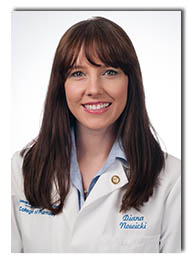
Diana Nicole Nowicki, PharmD
PGY1 Pharmacy Resident at John H. Stroger, Jr. Hospital of Cook County
You’re a pharmacy resident, now what?
By Diana Nicole Nowicki, PharmD
After spending the last six years preparing for a pharmacy career, I was accepted into a residency program. I expected to feel an immediate difference during this transition. The only change I did notice was the confusion I felt about the next steps after pharmacy school. I kept asking myself, “I’m a pharmacy resident, but now what do I do?”
For some of my colleagues, the career path and the steps to follow have been clear since early pharmacy school. Personally, I have had a passion for the profession but have yet to settle on a specialty on which to focus. This can make finding your place within the profession even more difficult. I have learned so far that even without my mind set on one particular area, there are still plenty of constructive steps to take to find yourself within your residency program and the profession. As a first year pharmacy resident, I set out to answer the question, “Now what?” and here is what I learned thus far.
Establish yourself as a new practitioner
Some residents find it difficult to transition from being a student to a new practitioner. Not all residency programs or preceptors allow you to practice autonomously. Regardless of the level of independence, take the opportunity to practice working up patients and addressing problems as if you were the sole pharmacist involved. Reflect on how your decisions would have impacted patient care and compare your approach to your preceptor’s strategies. This will not only allow you to practice decision-making in a learning environment, but allow you to assess your strengths and gaps in pharmacy practice. Continue to absorb your preceptor’s teaching and practice style so that you can build upon what you have learned previously and develop your own style. Ultimately, this year of residency is for you to develop your own teaching philosophy and unique practice style. Use this time to try out different data collection sheets, experiment with educational exercises for students, and freshen up on topics that are new or a weakness of yours.
Take advantage of rotations and opportunities
Even if you know what area of pharmacy on which you want to focus, it is important to always take advantage of new opportunities. Plenty of residents have shared stories of finding their future career path unexpectedly while trying out a different practice area. There are other reasons to choose rotations outside of your comfort zone including to diversify your curriculum vitae and strengthen your core pharmacy skills. No matter what practice area you are in, the basic skills of pharmacokinetics, pharmacodynamics, patient interaction, and drug utilization review are at the core of each experience. Continuing to improve these skills will further make you a well-balanced pharmacist. In a marketplace where pharmacists play multiple roles and may be expected to engage in a hybrid practice model, having distinctive clinical rotation experiences can position you to appropriately handle varying career opportunities. This is especially true for those of us who have yet to find our place in the profession. Not only will selecting an assortment of rotations let new practitioners “find their calling” but continue to make them desirable candidates for various career paths.
These opportunities are not just limited to rotations. Depending on the timing and where you practice, there are chances for you to be involved in protocol development, implementing new pharmacy programs, or devising patient outreach programs. Being able to talk about these projects during a job or PGY2 residency interview will showcase your leadership and initiative. In addition, allowing yourself to take time away from the traditional activities of residency will provide a stress reliever.
Form relationships with preceptors and mentors
For many of us, we chose our residency program for the chance to work with clinicians whom we admire, want to learn from, and whom we got along with during the interview process. Now that these pharmacists are our direct supervisors in various clinical scenarios, it can be an intimidating or awkward process to begin to see them as colleagues, and vice versa. As you become part of the clinical team, remember that although you are new to the institution’s pharmacy dynamic, it is important to gain the trust of your peers by being dependable and trustworthy. This will assist in the transition to a colleague.
Depending on the program, you may also have the prospect of being assigned or selecting a mentor. For most individuals, this is a pharmacist who practices in their interest area. Consider selecting another pharmacist mentor outside of your interest area who offers an alternative perspective. Whichever you choose, preceptors and mentors can offer networking connections, advice on career search and advancement, and be your confidante and advocate during and after your residency.
Explore the job market
As December approaches, so does the half-way point for the residency year. Before we know it, it will be time to start the interviewing process over again. The end of the year is also the time when thousands of residents nationwide converge upon the American Society of Health-System Pharmacists (ASHP) Midyear Clinical Meeting and Exhibition. This conference offers vast networking through evening socials, poster presentations, the Residency Showcase, and Personnel Placement Service (PPS). It is advisable to be on your best behavior and have business cards in hand. Your next employer could easily be sitting next to you on the plane ride home or on one of Universal Studios Florida™ attractions. Be open to hearing about different job prospects as the field of pharmacy is multidisciplinary and limitless.
Tap into organizational resources
ICHP and other organizations can help bridge the gaps in your job search. Below are just some of the ways to network:
- Join an ICHP Committee
- Utilize career boards like ICHP Career Center or ASHP CareerPharm
ICHPeople
Follow us! Find us here:

http://twitter.com/ichpnet

http://instagram.com/ichpnet

http://linkedin.com/company/ichpnet

http://facebook.com/ichpnet

Join us in congratulating ICHP Member Lara Ellinger and her family on the birth of their son!
They welcomed Gabriel Martin Fetzer into the world on 10/17, he was 7 lbs 12 oz and 20 in long.
College Connection
Univerisity of Illinois at Chicago
Exploring Professional Experience Opportunities through a Student Showcase
College Connection
by Kelsey Bridgeman, P3, Professional Practice Chair; Jane McCullough, P3, Co-Fundraising Chair, University of Illinois at Chicago College of Pharmacy
Each Fall semester at the University of Illinois at Chicago College of Pharmacy, our ICHP student chapter hosts an Internship/Externship Showcase geared towards first-year pharmacy students. This event allows students to explore various job opportunities and learn about the different positions held by their peers. While we have included students representing various institutions in the past, this year our participant group was expanded. To focus on alternative opportunities, we included more health-systems from across the greater Chicagoland area. We also broadened our focus to advertise for opportunities available to second and third-year students as some programs are limited to first-year applicants only. The showcase was moved to the school’s main lobby from its normal conference room to attract a higher volume of interested students and provide more space.
This year, twenty-eight students were stationed at booths around the room with informational handouts for their respective programs during lunch hour. Student Externs from UI Health represented the UIC Drug Information Group. Inpatient and outpatient services including unique areas such as specialty and oncology clinic pharmacies were also represented. Other health-systems included Northwestern Memorial Hospital, Mount Sinai Hospital, Rush University Medical Center, and the Jesse Brown VA Medical Center. Several new additions this year were the inclusion of research-focused programs. These programs included the UIC Pharmacy Fellowship program, the Pediatric Oncology Education Program from St. Jude’s Children’s Research Hospital, and industry opportunities from Abbvie, Astellas Pharma, and Takeda Pharmaceuticals. The showcase attracted approximately sixty students who were eager to learn more about the participating opportunities and programs and hear first-hand accounts of various work experiences.
The showcase serves to benefit both presenters and attending students. Professional work experience is a necessary and important part of development throughout pharmacy school, and work is a source of accomplishment and pride for many students. The showcase provides an opportunity for students to speak confidently about their work, gain familiarity with presenting to a group of their peers, and represent their institutions. In addition, this showcase provides the unique opportunity for students to discuss their experiences balancing work and school. For students seeking job opportunities, the showcase allows them to learn about different positions and also to ask questions regarding the application process, job responsibilities, and skills gained from the experience. Overall, students may use the information gained at this event to compare different pharmacy workplace environments and make well-informed decisions when pursuing positions.
As a recurring event offered by our student chapter at UIC, this showcase continues to benefit students each year. For students currently holding positions, this is a highly anticipated event in which they can share their experiences, hard work, and insights with their peers. In turn, this enthusiasm on the part of the presenters attracts students to attend or participate in subsequent years. This program serves as a valuable resource for information and perspective beyond what is available on most websites or brochures. As we continue to develop this initiative, we hope to further encourage participation by our members within the student chapter, as well as sparking interest in involvement with ICHP outside of the College of Pharmacy.
Southern Illinois University Edwardsville
Jamaica Dental Mission Trip
College Connection
by Nicole Wheeler SIUE Student Pharmacist, P3 SIUE SSHP Treasurer
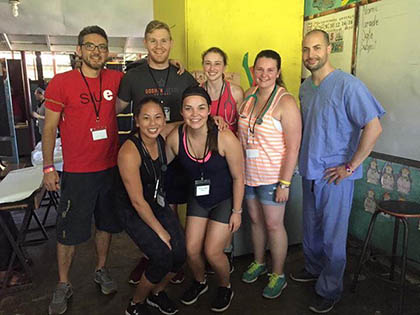
This past summer I had the privilege to take part in the Jamaica Dental Mission Trip. The Jamaica dental mission aims to improve the oral health and wellbeing of underserved, underinsured, and uninsured Jamaican children and adults by providing access to care and building community relationships. This annual mission trip started in 2000 with dentists and dental students traveling to Jamaica every summer to provide oral exams and procedures free of charge. Since its initiation, the program has grown to include the SIUE School of Pharmacy in 2006. The collaboration with the pharmacy school added opportunities for the patients to be screened for other medical conditions such as hypertension and diabetes. In addition, the pharmacists and pharmacy students were able to provide medication, counseling, and contraceptives to any individual coming in for an oral exam. In 2017, a total of 57 volunteers traveled to Jamaica for seven days in July. These volunteers included twenty dental students and ten pharmacy students.
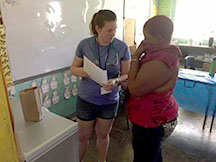
We arrived in Jamaica on Saturday to unpack, set up, and prepare for the upc
oming week at clinic. Each day of clinic we would leave the resort around 7:30 AM and arrive back around 7:00 PM. Depending on the clinic site, it was either a ten-minute or an hour drive. Once we arrived at the clinic, there was a debriefing to go over what took place the day before and what needed to be done that day. The dental students would prepare their chairs while we would set up the pharmacy. Every person that came in for a checkup would be seen by a pharmacy student first. We would go over their patient history, check their blood pressure, and check their glucose if they had diabetes. Next, the patient would go to triage to find out what dental work they would need before moving to the next open chair to have their procedures completed. After the dental students finished, each patient would return to the pharmacy to be given pain medication and any antibiotics as needed. Every patient received counseling on oral hygiene, medications, a toothbrush, toothpaste, and condoms. If a child came in, they would also receive a toy along with their toothbrush and toothpaste.
During the four days at clinic, we screened and treated around 700 patients. To date, this mission trip has treated about 17,500 Jamaican residents. This year, the dental students
performed around 650 extractions and 400 fillings. Due to the relationships that have been made with the Jamaican community, some of these patients come back year after year to have an oral exam and health screening. This year we were even able to have a mobile bus parked outside one of the clinics for a day that performed HIV testing. This entire mission trip would not be possible without help from the local residents. This could include anything from cleaning up, cooking lunch, or helping to maintain the crowds waiting for their turn to be seen.
This experience was very eye-opening and one that I will remember forever. It was breathtaking to see the differences in our cultures. Every patient was genuine and very appreciative of everything that we were doing for them. I cannot even count how many hugs and thankful wishes I received from the patients I screened or counseled. Being in a different country helped me step out of my comfort zone. This trip also made me more comfortable when screening and counseling patients on their medical conditions and medications. I am very excited to travel back to Jamaica next year to learn even more about their culture and help many more patients!
More
Upcoming Events
Visit the ICHP Calendar for the most up-to-date events! 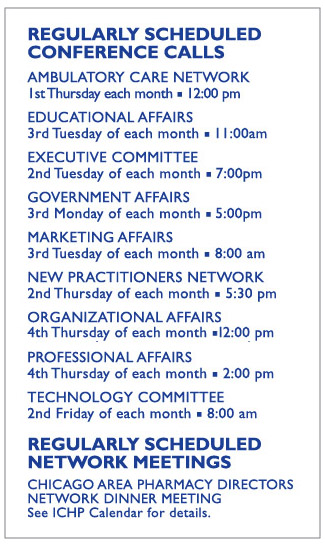
View our events on Facebook
Tuesday,
December 12, 2017
Direct Acting Antivirals: An Update on the
Rapidly Evolving Treatment of Hepatitis C
Sarah
Wagner, PharmD
Sangamiss LIVE Program
Location:
Fire and Ale
135 Illini Blvd.,
Sherman, IL 62684
Accredited for pharmacists and pharmacy technicians | 1.0
contact hour (0.1 CEU)
Tuesday, January 9, 2018 - Save the Date
Use of Ketamine and Lidocaine in Acute Pain Management
Jessica
Lorenson, Pharm.D.
PGY-1 Pharmacy Resident
Sangamiss LIVE Program
Location:
Mariah's Restaurant
3317 Robbins Road, Springfield, IL
Accredited for pharmacists and
pharmacy technicians.
Watch for more information in
upcoming news briefs.
Wednesday, January 10, 2018
Spring Meeting Posters Due!
Wednesday, January 17, 2018 - SAVE THE DATE!
NISHP
Double Feature
Presentation #1:
Anticoagulation
Vicki Groo,
Pharm.D.
Clinical Associate Professor of Pharmacy Practice and Medicine, Section
of Cardiology, University of Illinois at Chicago
Sponsored
by Bristol-Myers Squibb
(Presentation #1 is
not available for continuing pharmacy education.)
Presentation #2:
Management of Lipids
Erika Hellenbart, Pharm.D.,
BCPS
Clinical Assistant Professor at the University of Illinois at Chicago
College of Pharmacy and Clinical Pharmacist at the University of Illinois
Hospital and Health Sciences System; and
Emily Armgardt, Pharm.D.
PGY-1
Pharmacy Practice Resident, University of Illinois at Chicago College of
Pharmacy
Sponsored by ICHP
Presentation #2 is accredited for pharmacists
and pharmacy technicians.
SAVE THE DATE! Watch for more information in upcoming news
briefs.
Officers and Board of Directors
 Noelle Chapman
Noelle Chapman
President-Elect
Regional Directors
Technician Representative
Network and Committee Chairs - non-voting
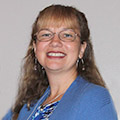 Jennifer Phillips
Jennifer Phillips
Editor & Chairman KeePosted
Committee Chair,
Nominations Committee
(630) 515-7167
jphillips@midwestern.edu
Welcome New Members!

| New Member |
Recruiter |
| Rachael Albert |
|
| Lisa Alexander |
Kimberly Zaleski |
| Stephen Arnold |
|
| Rebekah Bartholomew |
|
| Emily Beskar |
Vicelle Sibal |
| Christin Black |
|
| Zheng Cao |
|
| Amanda Cotter |
|
| Dillon Dickow |
|
| Lara Dilanjian |
Kathryn Schiavo |
| Tatjaya Djakovic |
|
| Kathrine Donnowitz |
|
| Nathan DuFoe |
Vicelle Sibal |
| Jasmine Forrest |
|
| Nicole Fuchs |
|
| Marilyn Garrett |
Ed Rainville |
| Alex Gregorowicz |
Bernice Man |
| Rhea Harlan |
|
| Kevin He |
|
| Brett Hemmann |
|
| Ian Hesch |
|
| Kristen Ingold |
|
| Kun (Peter) Lin |
|
| Megan Malone |
|
| Sarah Marks |
Kimberly Zaleski |
| Conner McClain |
|
| Andrew McInerney |
|
| Kevin Mercer |
|
| Stacy Miller |
|
| Shavonne Montgomery |
Vicelle Sibal |
| Sameer Nagamiyan |
|
| Phuong Nguyen |
David Lamb |
| Alex Nudo |
|
| Folu Ogunlari |
|
| Nicholas Orslini |
|
| Mack-Anthony Parayo |
Bridget Dolan |
| Taylor Parker |
|
| Anushka Patel |
|
| Hunter Ragan |
|
| Diana Reincke |
|
| Lauren Rekowki |
|
| Denise Scarpelli |
Kevin Colgan |
| Vishal Shah |
|
| Paris Smith |
|
| Alexis Tandyk |
|
| Samson Tang |
|
| Kayla Tipton |
|
| Danielle Vahlkamp |
|
| Rohan Vashi |
|
| Tim Walsh |
|
| Amanda Weber |
|
| Leslie Weckerlin |
Margie Filpi |
| Tim Westergren |
Vicelle Sibal |
| Tiera Williams |
|
ICHP Pharmacy Action Fund (PAC) Contributors
ADVOCACY ALLIANCE - $2500-$10000
Kevin Colgan
Edward Donnelly
James Owen Consulting Inc.
Frank Kokaisl
Scott Meyers
Michael Novario
Thomas Westerkamp
LINCOLN LEAGUE - $1000-$2499
Sheila Allen
Ginger Ertel
Ann Jankiewicz
Jan Keresztes
Kathy Komperda
William McEvoy
Michael Rajski
Christina Rivers-Quillian
Carrie Sincak
Avery Spunt
JoAnn Stubbings
CAPITOL CLUB - $500-$999
Margaret Allen
Tom Allen
Peggy Bickham
Travis Hunerdosse
Leonard Kosiba
Mary Lee
Janette Mark
Jennifer Phillips
Edward Rainville
Kathryn Schultz
Tara Vickery-Gorden
Jill Warszalek
Cathy Weaver
Alan Weinstein
GENERAL ASSEMBLY GUILD - $250-$499
Jen Arnoldi
Scott Drabant
Brad Dunck
Michael Fotis
Charlene Hope
Kim Janicek
Kenneth Miller
Peggy Reed
Carrie Vogler
Marie Williams
SPRINGFIELD SOCIETY - $100-$249
Kathy Cimakasky
Linda Grider
Glenna Hargreaves
Milena McLaughlin
Kit Moy
Danielle Rahman
GRASSROOTS GANG - $50-$99
Marc Abel
Antoinette Cintron
Veronica Flores
Ina Henderson
Leslie Junkins
Richard Kruzynski
Connie Larson
Nan Lundquist
Michelle Martin
Rebecca Ohrmund
Kathryn Wdowiarz
CONTRIBUTOR - $1-$49
Gabriel Ahiamadi
Aprille Banchoencharoensuk
Angelia Dreher
Kathy Eakright
Kimberly Gibson
Janet Hinkes
Dawn Hunsberger
Abby Kahaleh
Vera Kalin
Karin Terry
Karen Trenkler
Izabela Wozniak

Print Entire Issue

 Presidents Message
Presidents Message Directly Speaking
Directly Speaking


 This past summer I had the privilege to take part in the Jamaica Dental Mission Trip. The Jamaica dental mission aims to improve the oral health and wellbeing of underserved, underinsured, and uninsured Jamaican children and adults by providing access to care and building community relationships. This annual mission trip started in 2000 with dentists and dental students traveling to Jamaica every summer to provide oral exams and procedures free of charge. Since its initiation, the program has grown to include the SIUE School of Pharmacy in 2006. The collaboration with the pharmacy school added opportunities for the patients to be screened for other medical conditions such as hypertension and diabetes. In addition, the pharmacists and pharmacy students were able to provide medication, counseling, and contraceptives to any individual coming in for an oral exam. In 2017, a total of 57 volunteers traveled to Jamaica for seven days in July. These volunteers included twenty dental students and ten pharmacy students.
This past summer I had the privilege to take part in the Jamaica Dental Mission Trip. The Jamaica dental mission aims to improve the oral health and wellbeing of underserved, underinsured, and uninsured Jamaican children and adults by providing access to care and building community relationships. This annual mission trip started in 2000 with dentists and dental students traveling to Jamaica every summer to provide oral exams and procedures free of charge. Since its initiation, the program has grown to include the SIUE School of Pharmacy in 2006. The collaboration with the pharmacy school added opportunities for the patients to be screened for other medical conditions such as hypertension and diabetes. In addition, the pharmacists and pharmacy students were able to provide medication, counseling, and contraceptives to any individual coming in for an oral exam. In 2017, a total of 57 volunteers traveled to Jamaica for seven days in July. These volunteers included twenty dental students and ten pharmacy students. 
 Wednesday, January 17, 2018
Wednesday, January 17, 2018 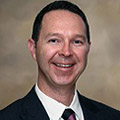 Travis Hunerdosse
Travis Hunerdosse Charlene Hope
Charlene Hope Noelle Chapman
Noelle Chapman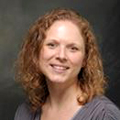 Kathryn Schultz
Kathryn Schultz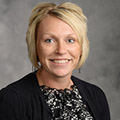 Amy Boblitt
Amy Boblitt Elise Wozniak
Elise Wozniak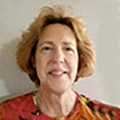 Lynn Fromm
Lynn Fromm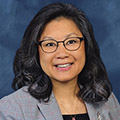 Mary Lee
Mary Lee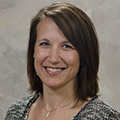 Karin Terry
Karin Terry Lara Ellinger
Lara Ellinger Carrie Vogler
Carrie Vogler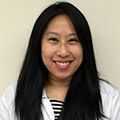 Bernice Man
Bernice Man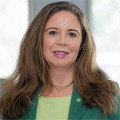 Abby Kahaleh
Abby Kahaleh David Tjhio
David Tjhio Jennifer Phillips
Jennifer Phillips Milena McLaughlin
Milena McLaughlin


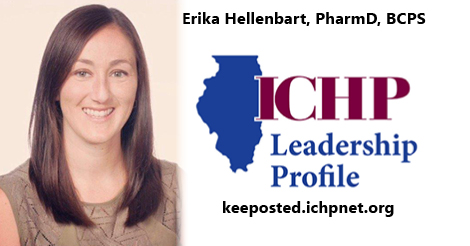




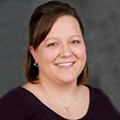 Jennifer Arnoldi
Jennifer Arnoldi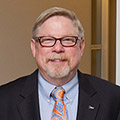 Scott Meyers
Scott Meyers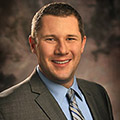 Christopher Crank
Christopher Crank Clara Gary
Clara Gary